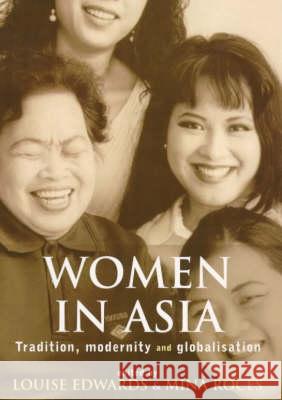Women in Asia » książka
Women in Asia
ISBN-13: 9781865083186 / Angielski / Miękka / 2000 / 342 str.
Women in Asia
ISBN-13: 9781865083186 / Angielski / Miękka / 2000 / 342 str.
(netto: 150,14 VAT: 5%)
Najniższa cena z 30 dni: 146,03 zł
ok. 16-18 dni roboczych.
Darmowa dostawa!
Women in Asia: Tradition, Modernity and Globalisation surveys the transformation in the status of women since 1970 in a diverse range of nations: Malaysia, China, Indonesia, Singapore, the Philippines, India, Taiwan, Vietnam, Hong Kong, Korea, Japan and Burma. Within these 13 national case studies the book presents new arguments about being women, being Asian and being modern in contemporary Asia.Recent social changes in women's place in society are untangled in recognition that not all change is 'progress' and that not all 'modernity' enhances women's status. The authors suggest that the improvements in women's status within the Asian region vary dramatically according to the manner in which women interact with the particular economic and ideological forces in each nation.Each contributor has focussed on a particular country in their area of expertise. They present innovative arguments relating to the problem of 'being women' in Asia during a period of dramatic social and political changes. Each national case study explores key social and economic markers of women's status such as employment rates, wage differentials, literacy rates and participation in politics or business. The effects of population control programs, legislation on domestic violence and female infanticide, and women's role in the family and the workforce are also discussed. The book poses questions as to how women have negotiated these shifts and in the process created a 'modern' Asian woman.Specialists from a variety of disciplines including history, anthropology, sociology, demography, gender studies and psychology grapple with the complexities and ambivalences presented by the multiple faces of the modern Asian woman. Complete with a list of recommended readings and a web-site with links to electronic resources, the book will be of particular interest to undergraduate students of Asian studies and women's studies as well as scholars and postgraduate students interested in comparative women's studies.











